Artificial intelligence could help create transparency and consistency in the legal system – our model shows how.


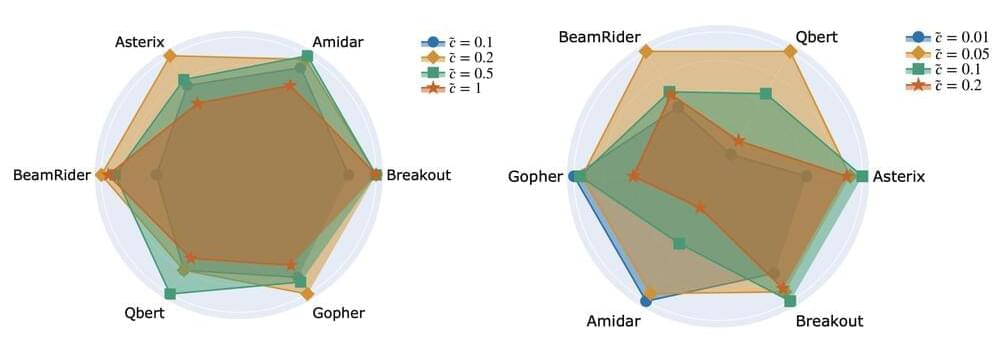
We then tested the new algorithms, called DQN with Proximal updates (or DQN Pro) and Rainbow Pro on a standard set of 55 Atari games. We can see from the graph of the results that the Pro agents overperform their counterparts; the basic DQN agent is able to obtain human-level performance after 120 million interactions with the environment (frames); and Rainbow Pro achieves a 40% relative improvement over the original Rainbow agent.
Further, to ensure that proximal updates do in fact result in smoother and slower parameter changes, we measure the norm differences between consecutive DQN solutions. We expect the magnitude of our updates to be smaller when using proximal updates. In the graphs below, we confirm this expectation on the four different Atari games tested.
Overall, our empirical and theoretical results support the claim that when optimizing for a new solution in deep RL, it is beneficial for the optimizer to gravitate toward the previous solution. More importantly, we see that simple improvements in deep-RL optimization can lead to significant positive gains in the agent’s performance. We take this as evidence that further exploration of optimization algorithms in deep RL would be fruitful.
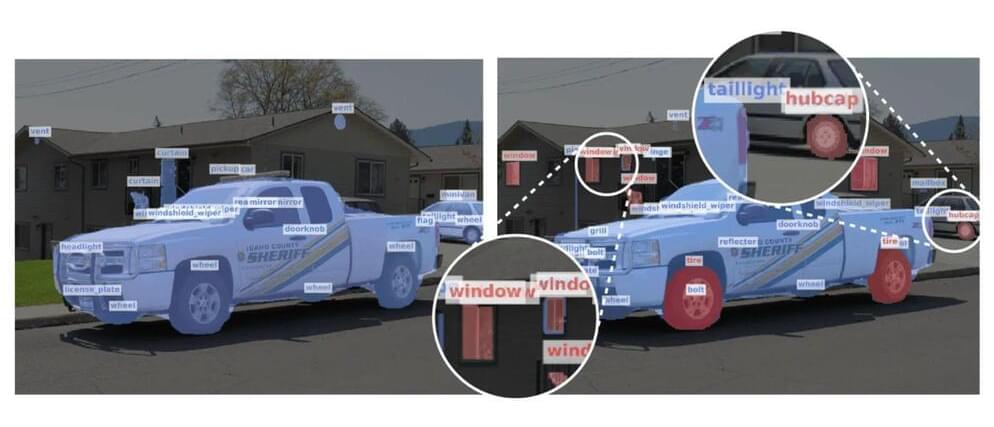
Object detection has been an important task in the computer vision domain in recent decades. The goal is to detect instances of objects, such as humans, cars, etc., in digital images. Hundreds of methods have been developed to answer a single question: What objects are where?
Traditional methods tried to answer this question by extracting hand-crafted features like edges and corners within the image. Most of these approaches used a sliding-window approach, meaning that they kept checking small parts of the image in different scales to see if any of these parts contained the object they were looking for. This was really time-consuming, and even the slightest change in the object shape, lightning, etc., could have caused the algorithm to miss it.
Then there came the deep learning era. With the increasing capability of computer hardware and the introduction of large-scale datasets, it became possible to exploit the advancement in the deep learning domain to develop a reliable and robust object detection algorithm that could work in an end-to-end manner.
D-Wave Systems, a pioneer in quantum annealing-based computing, today announced significant upgrades to its constrained quadratic model (CQM) hybrid solver that should make it easier to use and able to tackle much larger problems, said the company. The model can now handle optimization problems with up to 1 million variables (including continuous variables) and 100,000 constraints. In addition, D-Wave has introduced a “new [pre-solver] set of fast classical algorithms that reduces the size of the problem and allows for larger models to be submitted to the hybrid solver.”
While talk of using hybrid quantum-classical solutions has intensified recently among the gate-based quantum computer developer community, D-Wave has actively explored hybrid approaches for use with its quantum annealing computers for some time. It introduced a hybrid solver service (HSS) as part its Leap web access portal and Ocean SDK development kit that D-Wave in 2020. The broad hybrid idea is to use classical compute resources where they make sense – for example, GPUs perform matrix multiplication faster – and use quantum resources where they add benefit.
The HHS also relies on familiar tools and helps deal with the nagging challenge of squeezing large practical problems onto, relatively speaking, D-Wave’s small quantum systems. Its systems are massive (Advantage has 2,000 qubits, Advantage2 is expected to have 5,000 qubits) compared with current gate-based quantum computer sizes (IBM is expected to soon debut a 400-plus qubit processor). But quantum annealing is a different beast and works differently. In most ways, the comparison is not at all apples-to-apples.
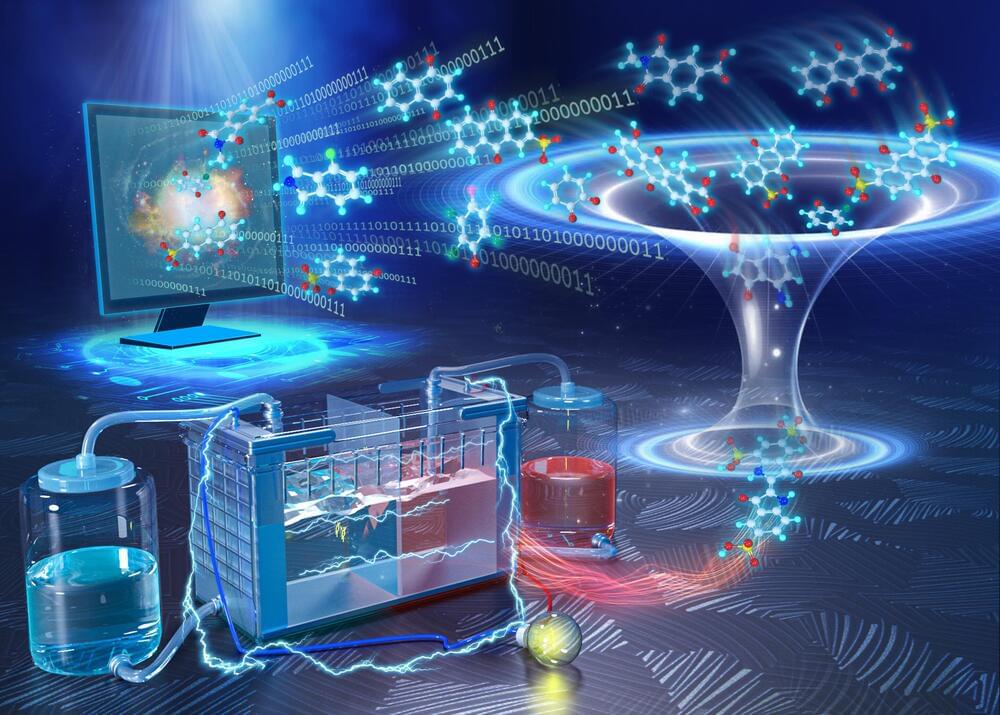
Scientists from the Dutch Institute for Fundamental Energy Research (DIFFER) have created a database of 31,618 molecules that could potentially be used in future redox-flow batteries. These batteries hold great promise for energy storage. Among other things, the researchers used artificial intelligence and supercomputers to identify the molecules’ properties. Today, they publish their findings in the journal Scientific Data.
In recent years, chemists have designed hundreds of molecules that could potentially be useful in flow batteries for energy storage. It would be wonderful, researchers from DIFFER in Eindhoven (the Netherlands) imagined, if the properties of these molecules were quickly and easily accessible in a database. The problem, however, is that for many molecules the properties are not known. Examples of molecular properties are redox potential and water solubility. Those are important since they are related to the power generation capability and energy density of redox flow batteries.
To find out the still-unknown properties of molecules, the researchers performed four steps. First, they used a desktop computer and smart algorithms to create thousands of virtual variants of two types of molecules. These molecule families, the quinones and aza aromatics, are good at reversibly accepting and donating electrons. That is important for batteries. The researchers fed the computer with backbone structures of 24 quinones and 28 aza-aromatics plus five different chemically relevant side groups. From that, the computer created 31,618 different molecules.
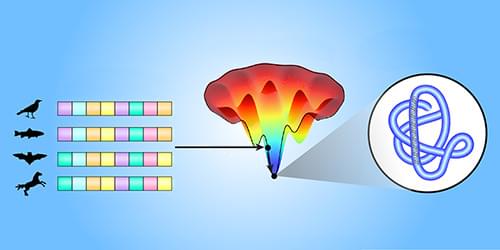
An algorithm that already predicts how proteins fold might also shed light on the physical principles that dictate this folding.
Proteins control every cell-level aspect of life, from immunity to brain activity. They are encoded by long sequences of compounds called amino acids that fold into large, complex 3D structures. Computational algorithms can model the physical amino-acid interactions that drive this folding [1]. But determining the resulting protein structures has remained challenging. In a recent breakthrough, a machine-learning model called AlphaFold [2] predicted the 3D structure of proteins from their amino-acid sequences. Now James Roney and Sergey Ovchinnikov of Harvard University have shown that AlphaFold has learned how to predict protein folding in a way that reflects the underlying physical amino-acid interactions [3]. This finding suggests that machine learning could guide the understanding of physical processes too complex to be accurately modeled from first principles.
Predicting the 3D structure of a specific protein is difficult because of the sheer number of ways in which the amino-acid sequence could fold. AlphaFold can start its computational search for the likely structure from a template (a known structure for similar proteins). Alternatively, and more commonly, AlphaFold can use information about the biological evolution of amino-acid sequences in the same protein family (proteins with similar functions that likely have comparable folds). This information is helpful because consistent correlated evolutionary changes in pairs of amino acids can indicate that these amino acids directly interact, even though they may be far in sequence from each other [4, 5]. Such information can be extracted from the multiple sequence alignments (MSAs) of protein families, determined from, for example, evolutionary variations of sequences across different biological species.
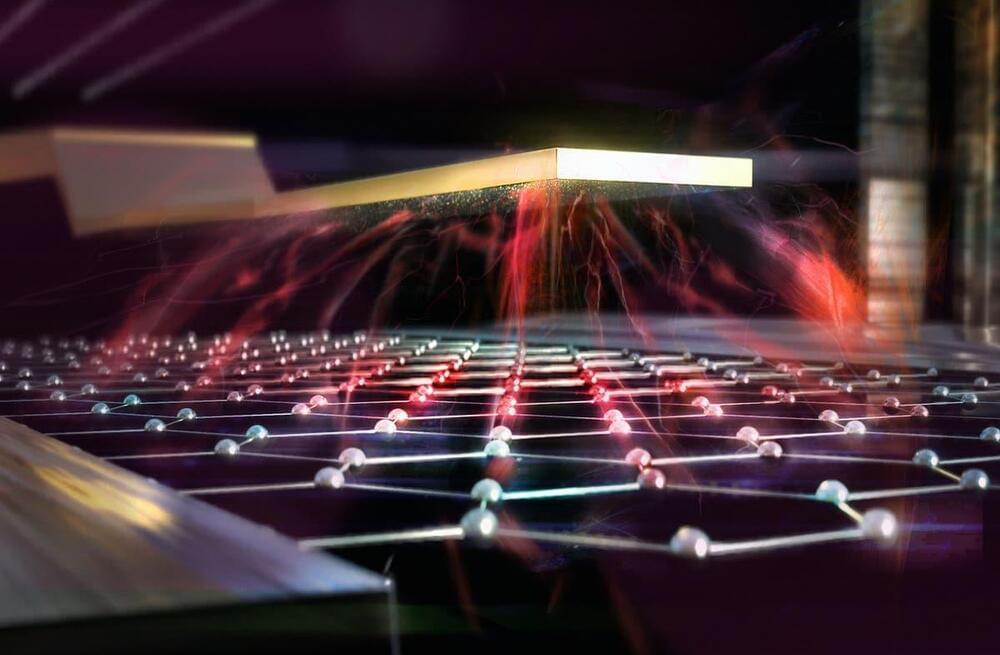
UC San Diego nanoengineering professor Shyue Ping Ong described M3GNet as “an AlphaFold for materials”, referring to the breakthrough AI algorithm built by Google’s DeepMind that can predict protein structures.
“Similar to proteins, we need to know the structure of a material to predict its properties,” said Professor Ong.
“We truly believe that the M3GNet architecture is a transformative tool that can greatly expand our ability to explore new material chemistries and structures.”

NEW DELHI: Among all the protests that have erupted across China following the strict quarantine measures enforced by the government for Covid-19, one form that has stood out is the display of a physics equation.
In images widely being circulated on social media, students of Beijing’s Tsinghua University can be seen holding sheets on which is written one of the Friedmann equations.
What these equations have to do with the subject of the protests is open to speculation. Many on social media have suggested that it is a play on the words “free man”. Another view is that it symbolises a free and “open” China, because the Friedmann equations describe an “open” (expanding) universe.

Osaka University researchers show the relativistic contraction of an electric field produced by fast-moving charged particles, as predicted by Einstein’s theory, which can help improve radiation and particle physics research.
Over a century ago, one of the most renowned modern physicists, Albert Einstein, proposed the ground-breaking theory of special relativity. Most of everything we know about the universe is based on this theory, however, a portion of it has not been experimentally demonstrated until now. Scientists from Osaka University’s Institute of Laser Engineering utilized ultrafast electro-optic measurements for the first time to visualize the contraction of the electric field surrounding an electron beam traveling at near the speed of light and demonstrate the generation process.
According to Einstein’s theory of special relativity, one must use a “Lorentz transformation” that combines space and time coordinates in order to accurately describe the motion of objects passing an observer at speeds near the speed of light. He was able to explain how these transformations resulted in self-consistent equations for electric and magnetic fields.
MIT researchers have devised an algorithm using voxels robotics devices to build anything from houses to planes to cars and even other robots by using a grid system that transfers knowledge to determine when to build what, and when to build other robot builders. New Google Deepmind video game artificial intelligence develops agents that can talk, listen, ask questions, navigate, search and retrieve information, control things, and do a range of other intelligent tasks in real-time. New Non-invasive brain computer interface device transmits information through optic nerve to compete with Neuralink BCI.
Tech News Timestamps:
0:00 Robotics Breakthrough Builds Anything — Even Robots.
2:44 New Google Deepmind Video Game AI
5:25 New Neuralink BCI Competitor.
#robot #ai #neuralink